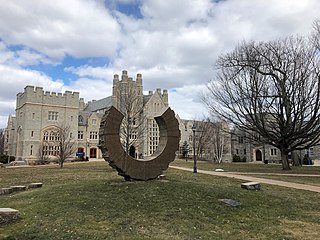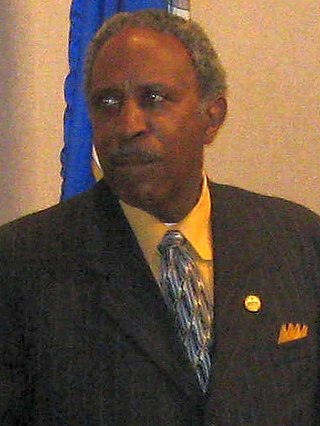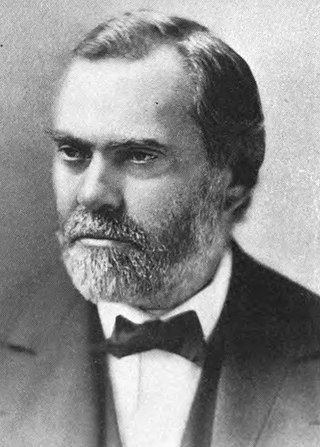
The University of Connecticut (UConn) is a public land-grant research university system with its main campus in Storrs,Connecticut,United States. It was founded in 1881 as the Storrs Agricultural School,named after two benefactors. In 1893,the school became a public land grant college,then took its current name in 1939. Over the following decade,social work,nursing,and graduate programs were established. During the 1960s,UConn Health was established for new medical and dental schools. UConn is accredited by the New England Commission of Higher Education.

The University of Connecticut School of Law is the law school associated with the University of Connecticut and located in Hartford,Connecticut. It is the only public law school in Connecticut and one of only four in New England. As of 2020,it enrolled 488 students.
UConn Health is a healthcare system and hospital,and branch of the University of Connecticut that oversees clinical care,advanced biomedical research,and academic education in medicine. The system is funded directly by the State of Connecticut and the University’s financial endowment. Its primary location,UConn John Dempsey Hospital,is a teaching hospital located in Farmington,Connecticut,in the US. In total,UConn Health comprises the hospital,the UConn School of Medicine,School of Dental Medicine,and Graduate School. Additional community satellite locations are located in Avon,Canton,East Hartford,Putnam,Simsbury,Southington,Storrs,Torrington,West Hartford,and Willimantic,including two urgent cares in both Storrs and Canton. UConn Health also owns and operates many smaller clinics around the state that contain UConn Medical Group,UConn Health Partners,University Dentists and research facilities. Andrew Agwunobi stepped down as the CEO of UConn Health in February 2022 after serving since 2014 for a private-sector job. Bruce Liang was UConn Heath's interim CEO for 2022-2024 and remains dean of the UConn School of Medicine. Andrew Agwunobi returned to UConn Health as Executive Vice President of Health Affairs and CEO beginning May 31,2024.

Thomas Joseph Meskill Jr. was a United States circuit judge of the United States Court of Appeals for the Second Circuit. He previously served as the 82nd governor of Connecticut,as a United States representative from Connecticut,and as the mayor of New Britain,Connecticut. He is noted as having served in all three branches of government and at the local,state and federal levels of government during his career of public service.
The Northeastern University School of Law is the law school of Northeastern University in Boston,Massachusetts.

The Connecticut General Statutes,also called the General Statutes of Connecticut and abbreviated Conn. Gen. Stat.,is a codification of the law of Connecticut. Revised to 2017,it contains all of the public acts of Connecticut and certain special acts of the public nature,the Constitution of the United States,the Amendments to the Constitution of the United States,and the Constitution of the State of Connecticut,including its 31 amendments adopted since 1965. The earliest predecessor to the currently in force codification dates to 1650.

Michael Spencer Greco is an American lawyer who served as president of the American Bar Association (2005–2006). He is a retired partner in the Boston office of K&L Gates,and a former partner at the now-defunct Hill and Barlow. He was a partner with Hill and Barlow from 1973 to 2002 and was a partner with K&L Gates from 2003 to 2017.
Michael Roland Murphy is a Senior United States circuit judge of the United States Court of Appeals for the Tenth Circuit.

Vanessa Lynne Bryant is a senior United States district judge of the United States District Court for the District of Connecticut.

David M. Borden was a Connecticut Supreme Court Justice from 1990 to 2007.

John Francis Manning is an American legal scholar who serves as the provost of Harvard University. He is the Dane Professor of Law at Harvard Law School (HLS),where he is a scholar of administrative and constitutional law. From 2017 to 2024,he was the 13th Dean of Harvard Law School.
Robert M. "Bobby" Chesney is an American lawyer and the Dean of the University of Texas School of Law. He is the Charles I. Francis Professor in Law and was the associate dean for academic affairs before becoming the dean. Chesney teaches courses relating to U.S. national security and constitutional law. He is also the director of the Strauss Center for International Security and Law. Chesney addresses issues involving national security and law,including matters relating to military detention,the use of force,terrorism-related prosecutions,the role of the courts in national security affairs and the relationship between military and intelligence community activities. He is a co-founder and contributor along with Benjamin Wittes and Jack Goldsmith to the Lawfare Blog. He also co-hosts The National Security Law Podcast with former Texas law professor,now at Georgetown Law,Stephen Vladeck.

Sara Cecilia Bronin is an American lawyer,professor,and architect. She is the chair of the Advisory Council on Historic Preservation.

Lubbie Harper Jr. is an American lawyer and judge who was the third African American to become a justice of the Connecticut Supreme Court,serving from 2011 through 2012. While seconded to the court in 2008,he cast the deciding vote in Kerrigan v. Commissioner of Public Health,a ruling that legalized same-sex marriage in Connecticut. Harper also served as a justice on the Connecticut Superior Court (1997–2005) and on the Connecticut Appellate Court (2005–2011).

Luke Aaron Bronin is an American politician and lawyer who was the 67th mayor of Hartford,Connecticut,serving from January 1,2016,to January 1,2024.

The law of Connecticut is the system of law and legal precedent of the U.S. state of Connecticut. Sources of law include the Constitution of Connecticut and the Connecticut General Statutes.

In the United States,those seeking to become lawyers must normally pass a bar examination before they can be admitted to the bar and become licensed to practice law. Bar exams are administered by states or territories,usually by agencies under the authority of state supreme courts. Almost all states use some examination components created by the National Conference of Bar Examiners (NCBE). Forty-one jurisdictions have adopted the Uniform Bar Examination (UBE),which is composed entirely of NCBE-created components.

Charles Storrs and Augustus Storrs were American business partners and brothers who played a key role in establishing the Storrs Agricultural School in 1881.

Lewis "Lew" B. Rome was an American attorney and politician who served in the Connecticut State Senate and ran unsuccessfully as the Republican Party nominee in the 1982 Connecticut gubernatorial election.














